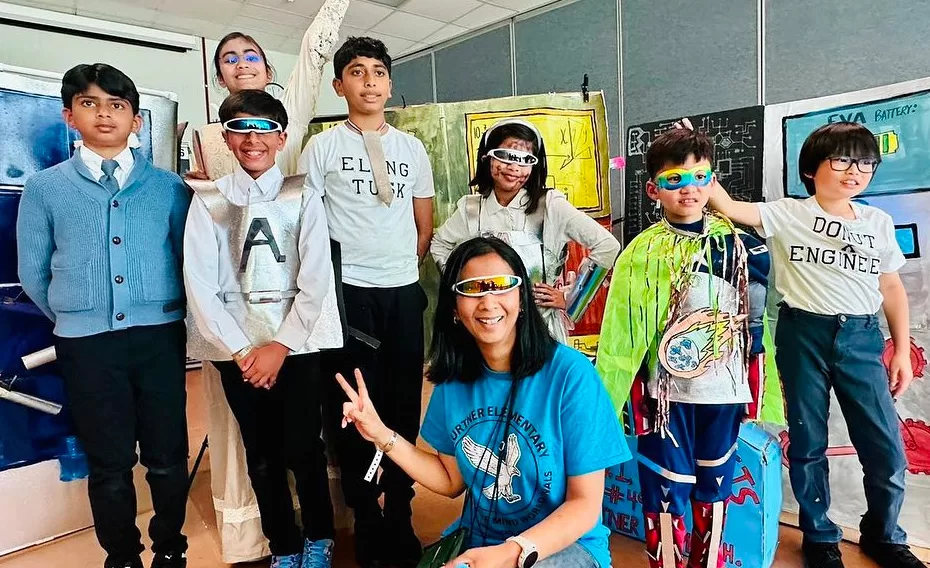Head Judge
The Head Judge for Long-Term or Spontaneous is the leader of the judging team. The Head Judge must keep the judging team on time and on task. (one per long-term judging team and one per spontaneous judging team)
Long-Term Head Judge:
The Head Judge reviews score sheets, compiles scores and prepares the master score sheet. He/she presents the scores to the team coaches and answers questions regarding the teams’ long-term scores. Should a coach raise an issue that the Head Judge cannot settle the Head Judge then contacts the Problem Captain and has the Problem Captain take over. The Head Judge must be thoroughly familiar with the long-term problem and have the ability to handle people in a friendly, but firm, manner. The long-term Head Judge sometimes doubles as a Problem or Style Judge, but this does not allow very much time to return scores and talk with coaches, so in this event you may wish to schedule teams a little farther apart or allow longer breaks.
Spontaneous Head Judge:
The Head Judge reviews the score sheets to make sure the judges have filled them out correctly and, in verbal problems, that all the judges have recorded the same number of responses. The Head Judge compiles the scores and prepares the Master Score sheet. The Head Judge designates who reads the problem to the teams, who checks that the correct team entered the room, and who chats with the team. The spontaneous Head Judge always scores the teams as well.
Problem Judge
Long-Term Problem Judges:
The Problem Judge scores the team’s long-term solution. In a performance problem this is generally a subjective opinion and the Problem Judge generally scores all aspects of the solution except Style. In a technical problem the Problem Judge is usually assigned a specific area or task to observe and scores only that portion of the team’s solution. The Problem Judge gives his/her score sheet to the Head Judge to compile onto the Master Score sheet.
Spontaneous Problem Judges:
In verbal problems, the Problem Judge evaluates the team’s answers. In a hands-on problem, the Problem Judge generally scores some specific aspect of the problem.
Staging Area Judge
The Staging Area Judge is the first official to greet the team in long-term. He/she puts the team at ease while reviewing the team’s paperwork. The Staging Area Judge forwards the paperwork to the appropriate long-term judges and inspects the team’s props, membership sign, etc. He/she evaluates the cost, the legality of the solution (if there are specific parameters), and whether items were made by the team members. The Staging Area Judge may ask the team members some basic questions in this regard but should pass along any concerns he/she has to the other judges for questioning after the team finishes its performance. The Staging Area Judge introduces the team to the Timekeeper. Sometimes the Staging Area Judge also serves as Timekeeper. If you are fortunate to have enough judges to have two Staging Area Judges, one can handle the paperwork while the other talks with the team, answers questions, and generally makes certain the team is at ease. This is helpful if your tournament is on a tight schedule.
Style Judge
Style Judges receive the teams’ Style Forms from the Staging Area Judge and review them for accuracy and to learn which areas they are to score. The Style Judge scores these areas and gives the scored Style Form to the Head Judge for compilation onto the Master Style Form. Style Judges do not confer with each other to determine scores. Style Judges sometimes also serve as Problem Judges.
Timekeeper/Announcer
The Timekeeper/Announcer is responsible for introducing the team to the audience and giving each team the exact amount of time allowed for the problem. It is critical that the Timekeeper be precise and exact in this regard.
Long-Term Time Keeper:
The Timekeeper completes the Timekeeper’s Checklist (found in the problem materials) then introduces the team to the judges and the audience. In problems where a penalty for overtime is given, he/she keeps exact time of the presentation and assesses a penalty for teams that go overtime. In other problems he/she stops the team at the end of the 8 minutes.
Spontaneous Time Keeper:
The Timekeeper reviews the various times that will be given, e.g. think time, practice time, response time, and clearly tells each team when to begin and end each timed portion. The spontaneous Timekeeper often serves as a Spontaneous Problem Judge as well.
Score Checker
This individual collects score sheets from the scoring judges and reviews them before sending them off to the score room. The Score checker makes sure the judges score within the appropriate range for subjective categories and award the correct number of points for objective categories. In spontaneous, a Score Compiler would be stationed in the Spontaneous Judges’ Break Room and check scores before they are sent to the Score Room.




